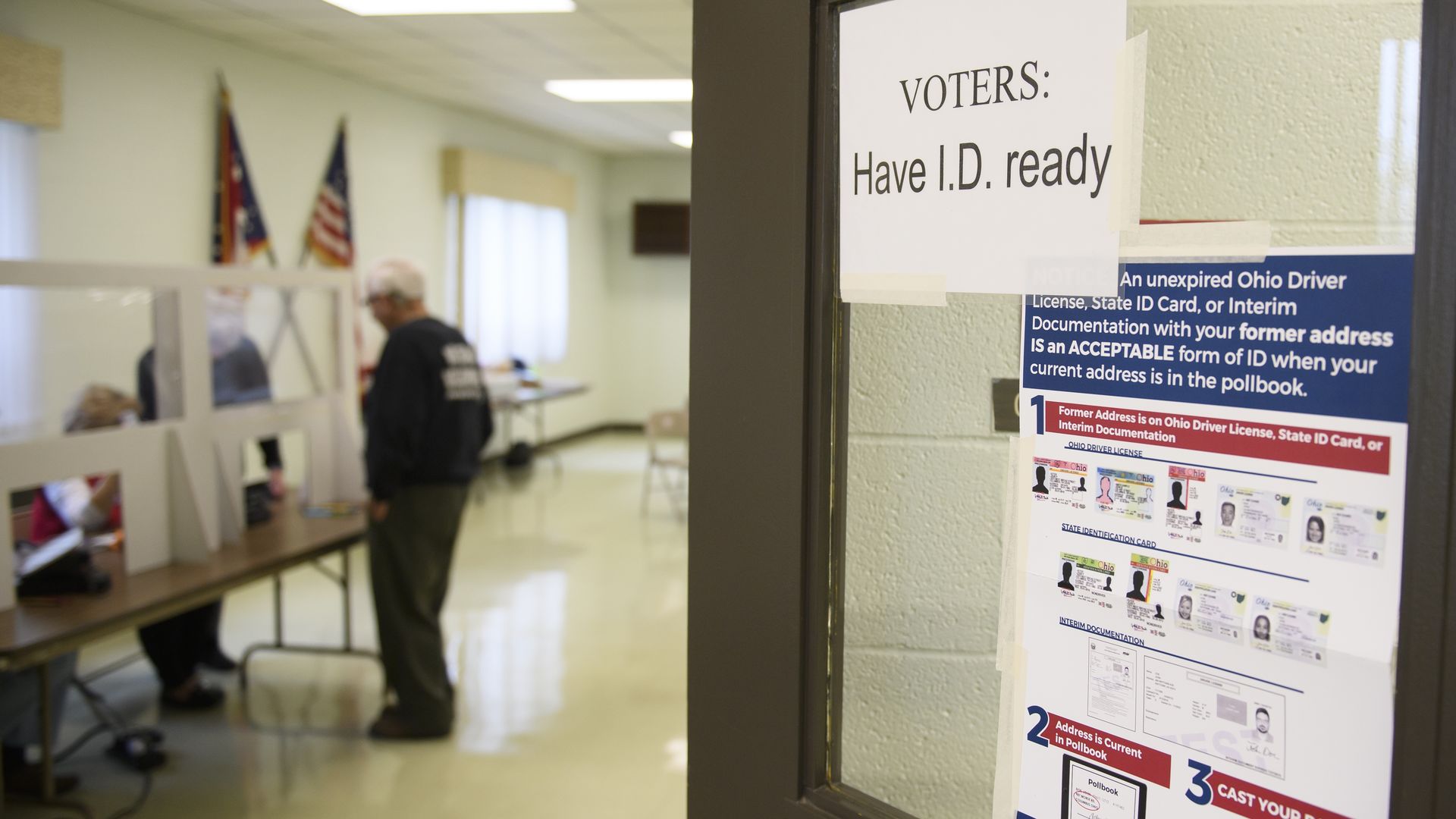New photo ID law faces legal challenge
Add Axios as your preferred source to
see more of our stories on Google.

A voting precinct during the May 2022 primary election. Photo: Jeff Swensen/Getty Images
A law group aligned with Democrats is contesting a new law requiring voters to present photo ID at the polls.
Why it matters: Gov. Mike DeWine recently signed a slate of election reforms into law, ostensibly meant to curb voter fraud.
- The changes impact how millions of Ohio citizens cast their ballots, leaving critics worried that some voters will be disenfranchised.
Details: Under House Bill 458, Ohioans can no longer use documentation like utility bills or paychecks to prove their valid voting address.
- Instead, voters must present a driver's license, state ID card, U.S. passport or military ID.
Separately, the bill eliminates August special elections in most cases and removes in-person early voting the day before an election. Other changes include:
- The deadline to request an absentee ballot is now seven days before an election instead of three.
- Counties are limited to one ballot drop box apiece.
- Mail-in ballots must now arrive within four days after an election, down from 10.
Threat level: The latter rule gives some veterans concern that military and overseas voters won't have enough time to have their ballots counted.
- The Elias Law Group filed its lawsuit on behalf of several organizations, including the Union Veterans Council.
What they're saying: The new rules "will severely restrict Ohioans' access to the polls," the suit contends.
- "(The bill is) a solution in search of a problem. No one seriously disputes that Ohio's elections are secure."
The other side: DeWine and Secretary of State Frank LaRose both support the new photo ID requirement despite repeatedly touting Ohio's election system as a national model. Both were re-elected in November.
- DeWine now views state voting law as "settled" and wrote in his bill signing statement that he does not expect any more changes in his second term.
Reality check: Voter fraud in Ohio is extremely rare. Following the 2020 general election, LaRose's office alleged at least 88 cases of non-citizens voting or citizens casting ballots in multiple states.
- Combined, that's .001% of the nearly 6 million votes cast in that election.
